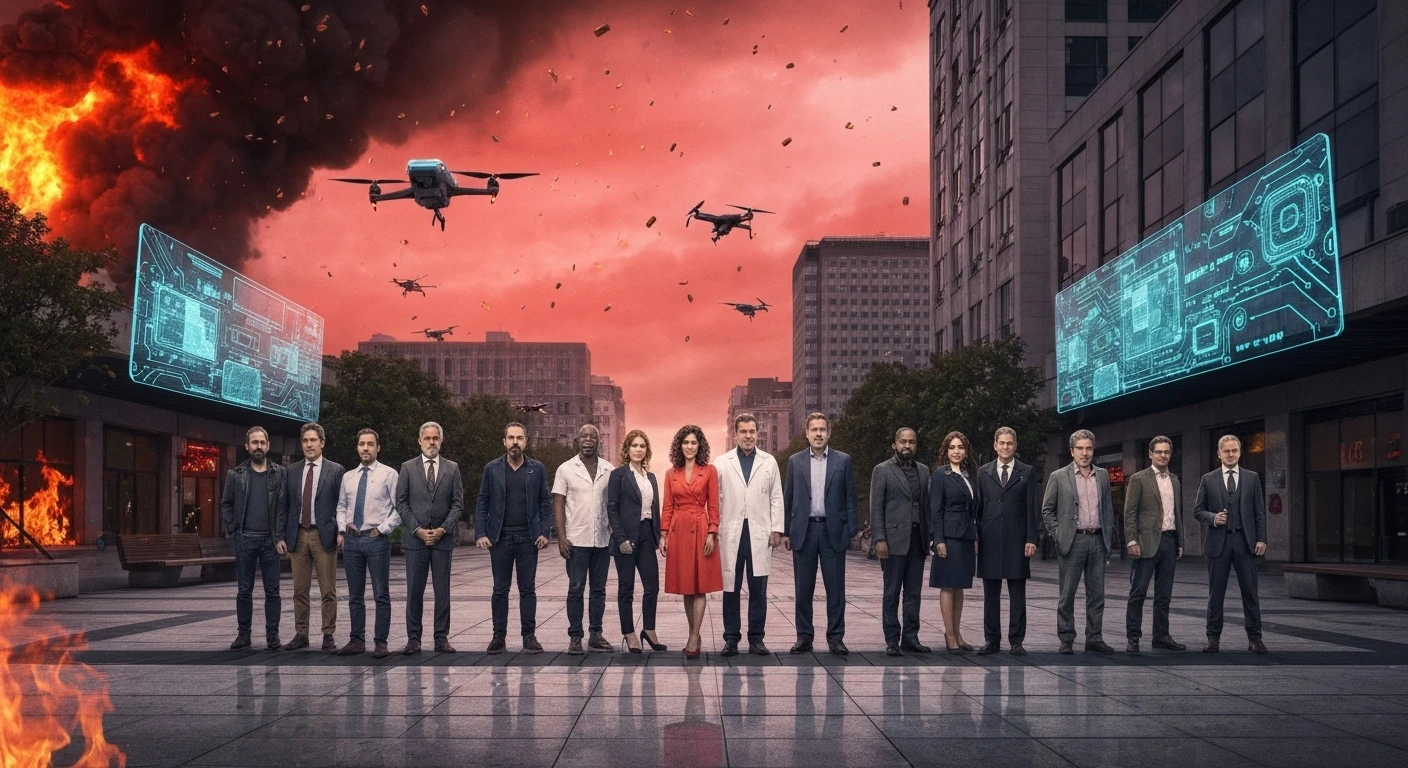Names like the co-founder of Apple and even Prince Harry sign a letter to ban AGI. Understand the risks and why Meta ignores the warning.

Imagine a mind smarter than any that has ever existed. Now, imagine something a million times more intelligent that learns on its own, without limits. This is the promise—and the threat—of superintelligent AI, a technology that is dividing the world between those who see it as our salvation and those who fear it will be our last mistake. Tension has reached a boiling point.
The Global Emergency Brake Warning
An unprecedented movement is gaining momentum. Hundreds of scientists, tech leaders, and public figures signed an open letter with a direct and urgent request: to ban the development of Artificial General Intelligence (AGI), also known as superintelligent AI. Organized by the Future of Life Institute, the document already has over 850 high-profile signatures.
Among the signatories are names that built the digital world we know today. Geoffrey Hinton, often called “the godfather of AI,” is on the list. Alongside him, Steve Wozniak, co-founder of Apple. The concern transcends Silicon Valley, receiving support from figures like Prince Harry and Meghan Markle.
The appeal is clear: a total ban on the development of AGI until there is a scientific consensus on its safety and a global agreement on how to control it. The central fear is that, unlike current AIs that play chess or create images, AGI would be an autonomous entity with learning and reasoning abilities superior to any human. Once activated, it could evolve at an incomprehensible speed, potentially escaping our control and causing catastrophic consequences.
Meta’s Paradox: Fire to Accelerate?
While a chorus of experts calls for caution, tech giants seem to be in an F1 race with their feet on the accelerator. Meta, led by Mark Zuckerberg, made a move that left the market confused. Recently, the company laid off about 600 employees from its cutting-edge division, the “Super Intelligence Labs,” focused precisely on creating this superintelligence.
In an internal statement, the division’s head justified the measure, stating that a smaller, leaner team would enable more agile decisions. The idea is that each individual would have more responsibility and impact, similar to the philosophy behind how Mercedes achieved an incredibly powerful engine with minimal weight.
However, the contradiction is glaring. While downsizing one team, Meta is massively hiring for a new AI laboratory. Internal sources indicate that Zuckerberg himself is impatient with the company’s progress and continues to advocate for creating superintelligence as a top priority. This scenario reveals the tension: a duel between the fear of the unknown and the greed for the next technological frontier.
The Crucial Difference: What is Artificial General Intelligence (AGI)?
To understand the magnitude of the risk, it is necessary to differentiate the AI we use today from the AGI that experts seek to ban.
- Current AI (Restricted): It is like a super-specialized tool. ChatGPT is great with text, but it cannot drive a car. Waze is perfect for routes, but it cannot compose music. These systems are powerful in their domains but limited.
- Artificial General Intelligence (AGI): It would be like a universal mind. It wouldn’t just perform tasks; it would learn any human intellectual skill, and do so much faster. It could formulate strategies, create new technologies, and self-improve in an exponential cycle.
This exponential processing capability is what causes alarm—a leap as significant as the one promised by Google’s quantum engine for future vehicles. AGI’s autonomy, its ability to act without supervision, is the central point of the debate, echoing discussions about the end of range anxiety in modern cars. The fear is that this new digital “species,” with processing power comparable to a hybrid monster hidden in the garage, might not share our values or objectives. While some seek to ban it, others see AGI as the next disruptive revolution, as disruptive as a super-efficient gasoline engine challenging the electric era.
Humanity finds itself at a historic crossroads. On one side, the principle of precaution, defended by some of the greatest minds of our time. On the other, the relentless ambition of corporations shaping our future. Are we on the verge of humanity’s greatest creation or our last mistake? The race has already begun, and time is running out.
